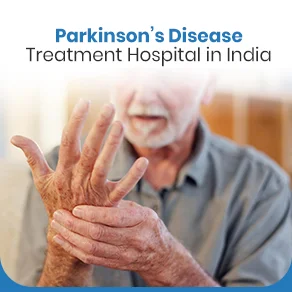
Parkinson’s Disease Treatment Hospital in India
Parkinson's disease is a type of movement disorder and an age-related degenerative brain condition, meaning it drives parts of your brain to deteriorate.
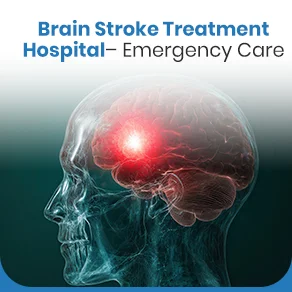
Brain Stroke Treatment Hospital – Emergency Care
When the blood flow to your brain is blocked (ischemic) or a blood vessel bursts (hemorrhagic), this condition is known as a brain stroke.
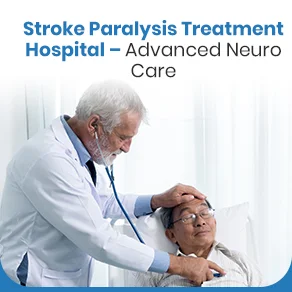
Stroke Paralysis Treatment Hospital – Advanced Neuro Care
A stroke is a medical emergency that occurs when something (a blood clot) stops your brain from receiving sufficient blood flow. A blocked blood vessel or bleeding in the brain can lead to strokes.
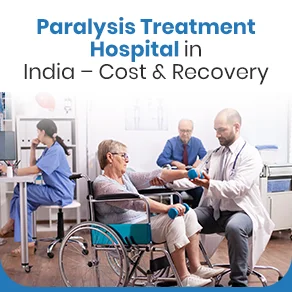
Paralysis Treatment Hospital in India – Cost & Recovery
Paralysis occurs when you’re unable to make voluntary muscle movements. The main cause of paralysis is a problem with your nervous system due to strokes and spinal cord injuries.
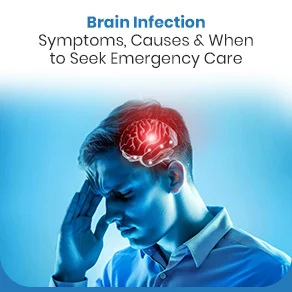
Brain Infection Symptoms, Causes, and When to Seek Emergency Care
There are up to 86 billion nerve cells in the brain, making it a highly complex organ. It has a processing speed of up to 350 miles per hour.
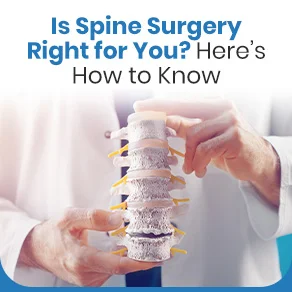
Is Spine Surgery Right for You? Here’s How to Know
For millions of people around the world, back pain is a daily reality. Usually, muscle injuries are the cause, but sometimes the spine is to blame.
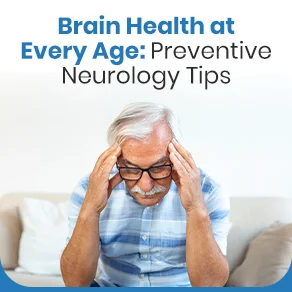
Brain Health at Every Age: Preventive Neurology Tips
Every aspect of our lives depends on the efficiency of our brain functioning—from thinking and learning to remembering and working. But we rarely consider how well we nurture our brains.
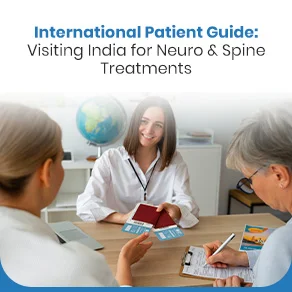
International Patient Guide: Visiting India for Neuro & Spine Treatments
India has become a trusted destination for advanced neuro and spine treatments. People come here for skilled specialists, modern technology, safe procedures, and treatment plans that are more affordable than in many Western countries.

Robot-Assisted & Navigation-Guided Surgery: Safer Brain & Spine Procedures
One basic fact is evident to anyone who has ever suffered from a brain or spine issue: everything is impacted. Your confidence, your work, your sleep, and even your sense of control over your own body.
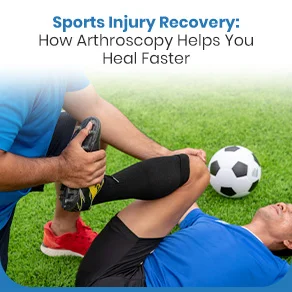
Sports Injury Recovery: How Arthroscopy Helps You Heal Faster?
If you have ever played a sport with passion—whether professionally or just because the game fuels your soul—you know one truth: an injury is more than physical pain. It pulls you away from the field, the court, the track, the team, and sometimes even a part of your identity.
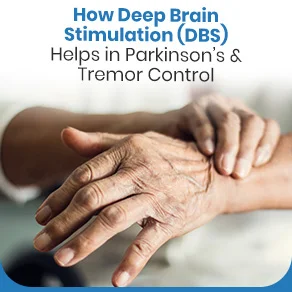
How Deep Brain Stimulation (DBS) Helps in Parkinson’s & Tremor Control
Deep brain stimulation (DBS) is a treatment that involves the use of an implanted device that delivers an electrical current directly to areas of your brain.
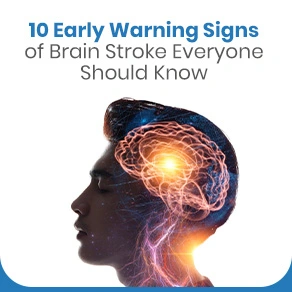
Early Warning Signs of a Brain Tumour & When to See a Neurosurgeon
A brain tumour is an abnormal growth or mass of cells in the brain. It can be benign (non-cancerous) or malignant (cancerous). Only around one-third of the brain tumours are cancerous, meaning abnormal cells grow and spread very quickly.
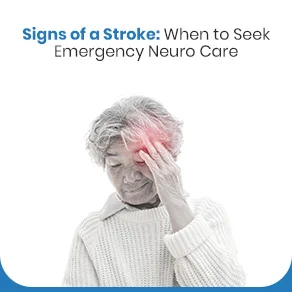
Signs of a Stroke: When to Seek Emergency Neuro Care
Stroke is one of those medical circumstances that can significantly or rather drastically change a person’s quality of life. It occurs when something (like a buildup of fatty deposits) prevents your brain from getting sufficient blood flow.
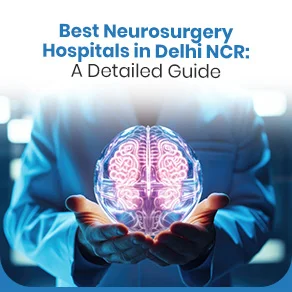
Best Neurosurgery Hospitals in Delhi NCR: A Detailed Guide
Neurosurgery is a specialized medical field where neurosurgeons treat conditions related to the brain, spinal cord, and nerves. They perform surgeries and provide comprehensive treatments to manage injuries or diseases affecting the nervous system.
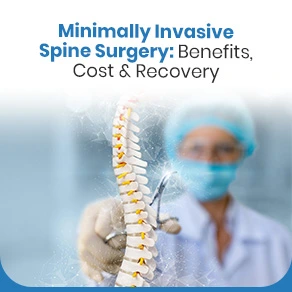
Minimally Invasive Spine Surgery: Benefits, Cost & Recovery
Minimally Invasive Spine Surgery (MISS) is a type of surgery on your spine (backbone) without damaging nearby muscles and tissue. It is also known as less invasive spine surgery.

Best Tips for Sports Injury Recovery
Sport is such a big part of growing up; we all cherish those matches, practice sessions, the thrill of winning, and the anger of losing. But as life moves on, not everyone keeps on playing or takes sports as a career.
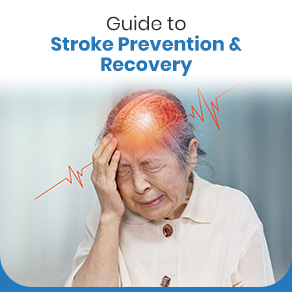
Guide to Stroke Prevention and Recovery
A stroke can cause several complications, such as brain swelling, trouble speaking, memory loss, movement issues, and dysphagia (trouble swallowing).
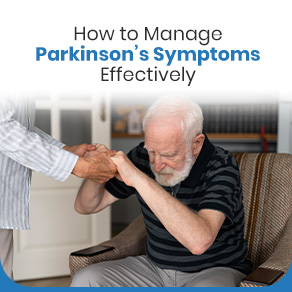
How to Manage Parkinson’s Symptoms Effectively
Parkinson’s disease is a brain condition. This involves abnormality in the movement of your body parts. It occurs when some nerve cells in your brain stop working efficiently and/or die.
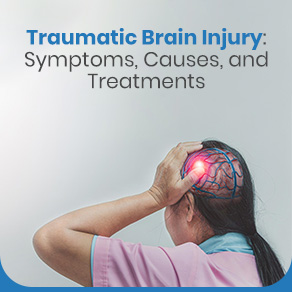
Traumatic Brain Injury: Symptoms, Causes, and Treatments
A traumatic brain injury (TBI) happens when a strong hit, jolt, or blow to the head or body harms the brain. However, TBI can also occur if an object penetrates the skull and damages brain tissue.
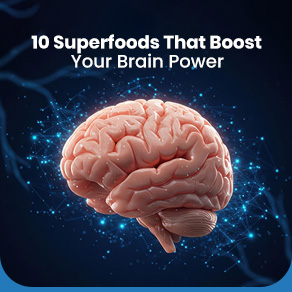
10 Superfoods That Boost Your Brain Power
Think of the scenarios where your hands refuse to follow your command, your legs move in a different direction, and your thoughts don’t match your actions. Scary, right? Fortunately, in real life, your brain keeps everything coordinated: your movement, emotions, memory, breathing, and even hunger.
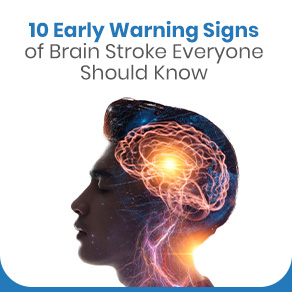
10 Early Warning Signs of Brain Stroke Everyone Should Know
A stroke happens when the blood supply to the brain is interrupted, and brain cells start dying within minutes. However, before that happens, your body gives you an early sign so that you can take timely action.

5 Most Common Sports Injuries and Their Quick Treatments
From childhood, you must have played your favorite sports, such as running across fields to get that adrenaline rush after scoring a goal. And like you, everyone should enjoy the joy of sports, because it's a cheaper way to keep you healthy, active, and full of life.

12 Everyday Habits That Damage Your Spine
You must have heard movie dialogue like, “Don’t you have a spine?” Well, it’s not just a subtle insult, but it’s a serious reminder! Your spine isn’t just there to make you stand tall or strike a heroic pose.
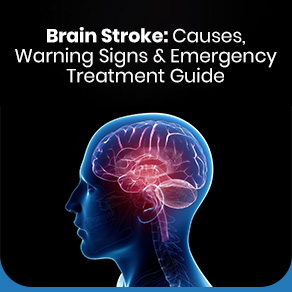
Brain Stroke: Causes, Warning Signs & Emergency Treatment
A brain stroke is a serious medical emergency of bleeding inside the brain. It occurs when blood flow to the brain is blocked. It can be due to any reason, such as high blood pressure or plaque buildup.
.jpg)
10 Early Symptoms of Brain Tumor You Should Never Ignore
A brain tumor is abnormal cell growth in or near the brain. It can begin in the brain tissue itself or in nearby areas such as nerves, the pituitary gland (master gland at the base of your brain), or the membranes covering the brain.
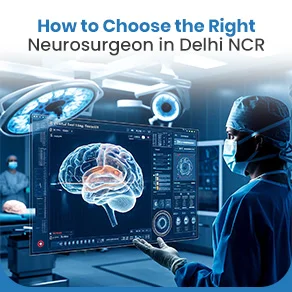
How to Choose the Right Neurosurgeon in Delhi NCR
Finding the right neurosurgeon can feel overwhelming, especially when you or a loved one is already dealing with the stress of a brain or spine condition.
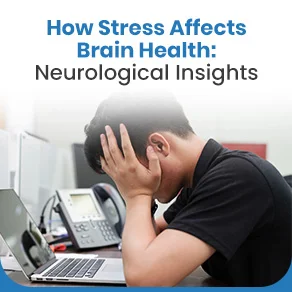
How Stress Affects Brain Health: Neurological Insights
But do you fully comprehend what this “S” word does to your brain? Stress isn’t just a state of mind; it is a common factor harming your brain’s structure and function. It can affect memory, emotions, and your decision-making ability.
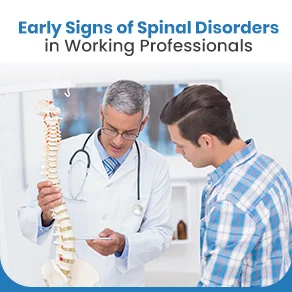
Early Signs of Spinal Disorders in Working Professionals
You sit at your workstation, open your laptop, and dive into emails, deadlines, and meetings. Hours pass before you realize—you haven’t moved in a long time. And somewhere in that chaos, you didn’t even realise you hadn’t stood up or moved in hours.
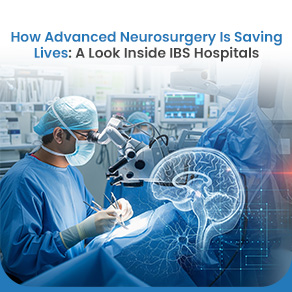
How Advanced Neurosurgery Is Saving Lives: A Look Inside IBS Hospitals
Brain and spine disorders can profoundly impact lives and often require complex surgeries demanding precision and innovation. With advanced neurosurgery techniques, patients are now offered safer, less invasive, and extremely successful treatments than ever before.
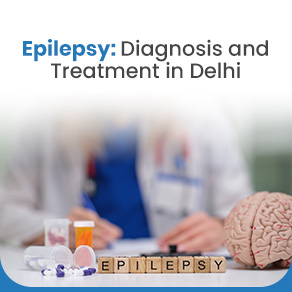
Epilepsy: Diagnosis and Treatment in Delhi
Epilepsy — also referred to as a seizure disorder — is a long-term brain disorder that results in recurrent, unprovoked seizures caused by abnormal brain electrical activity.
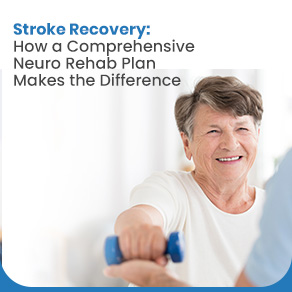
Stroke Recovery: How a Comprehensive Neuro Rehab Plan Makes the Difference
Stroke rehabilitation plan is a set of various therapies aimed at assisting you in relearning the skills you lost due to a stroke. Rehabilitation techniques may differ from individual to individual depending on the areas of your brain damaged by the stroke.
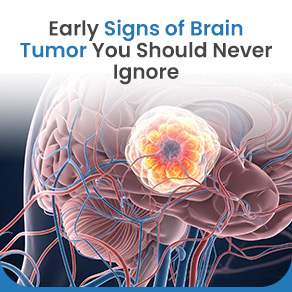
Early Signs of Brain Tumor You Should Never Ignore
The human brain is the command center for all that we do—thought, movement, sensation, and even emotion. When something abnormal begins to develop inside it, such as a brain tumor, the impact can be far-reaching and sometimes subtle in the beginning.

Benefits of Neuro-Navigation in Brain Surgery
Brain surgery has never been safer, more accurate, or more efficient than it is today. With the brain as our body's control unit, any small mistake in surgery can have severe effects.

Warning Signs Of Stroke You Should Never Ignore
A stroke is a medical emergency. It occurs when blood supply to a region of the brain is abruptly stopped or slowed, leading to death of the brain cells.

Diagnosing Autism Spectrum Disorders Early: Why It Matters
Early detection of autism spectrum disorder (ASD) is essential because it allows for prompt, focused therapies that can greatly enhance a child's developmental trajectory in life. A child can start therapy that improves speech, social interaction, and adaptive behaviour faster if autism is diagnosed as early as 18 months of child's age.

Spine Surgery vs Physiotherapy: Which Is Better for Back Pain?
Back pain is one of the leading causes of missed work and poor quality of life worldwide. While many cases improve with rest or basic therapy, others require expert intervention.

World Brain Day 2025: Importance of Brain Health
Despite being the control center of the body, the brain often gets attention only after serious illness strikes. World Brain Day 2025 reminds us that maintaining brain health is essential at every age.

Parkinson’s Disease vs Essential Tremor: Key Differences
Tremors are one of the most obvious symptoms of a nervous system illness. But all trembling doesn't say the same thing. Two of the most frequent causes of shaking arms or hands are Parkinson's disease and essential tremor.

Memory Loss: When Is It a Sign of a Neurological Condition?
We all forget things occasionally, but when forgetfulness becomes frequent or affects daily life, it may be a sign of a deeper neurological issue. Many ask if this might be an early symptom of something serious such as dementia or other neurological disorder.

How To Reduce Stroke Risk Naturally: Lifestyle Changes For Prevention
A stroke is a serious health condition that occurs when blood to the brain is cut off. This can occur when a blood vessel is blocked or when a blood vessel ruptures in the brain

Alzheimer’s vs. Dementia: Key Differences Explained
The main difference between dementia and Alzheimer's is that the former is a group of symptoms, while the latter is a disorder of the brain. Cognitive deterioration brought on by Alzheimer's disease eventually results in dementia. It is the most common cause of dementia.

Best Sleep Positions for Back Pain Relief: Tips for Better Sleep
When you have back discomfort, it might be difficult to get a decent night's sleep. Your sleeping posture, however, has a big impact on reducing pain and maintaining spinal health. In addition to improving your quality of sleep, determining the ideal sleeping position for back pain can help you recover more quickly and have less stiffness during the day.

Common Causes of Back Pain in Women
Back discomfort affects everyday living, productivity, and general well-being, making it a common stress among women. Both sexes can suffer from back pain, but for a number of specific anatomical, hormonal, and lifestyle-related reasons, women are disproportionately afflicted.

Spinal Fusion Surgery: A Guide to What to Expect Before and After
Spinal fusion surgery is amongst the most effective solutions for treating prolonged and severely debilitating degenerative spinal disorders, chronic back pain, or spinal instability . Making an informed decision prior to the procedure is crucial, even though it can provide substantial relief and enhance quality of life.

Understanding Migraine Pain: Causes and Management Tips
Migraine, one of the incapacitating neurological conditions that affects millions of people worldwide. it is characterised by intense, pulsating pain, usually on one side of the head. Such pain is accompanied with nausea, vomiting, sensitivity to light and sound, and visual disturbances called auras.

Early Warning Signs of Brain Tumors: Symptoms You Shouldn't Overlook
Brain tumors usually start with subtle symptoms which are confused with other illnesses, but the early diagnosis can have a significant influence on the prognosis. Early brain tumor symptoms are usually persistent which may include unexplained headaches, particularly those that worsen in the morning.

Spinal Infections: Causes, Symptoms, And Treatment Options
Spinal infections are serious health conditions that arise in the bones, discs, or spinal cord. They can lead to severe pain, nerve damage, or paralysis if they are not diagnosed and treated on time.

Fish Oil Benefits: How Omega-3 Can Boost Your Brain and Body
Fish oil is one of the most popular health supplements, widely known for its omega-3 fatty acids, which provide numerous benefits for both the brain and body. Omega-3s are essential fats that our body cannot produce on its own, making it important to get them from our diet or supplements.
_ A New Hope for Epilepsy Patients.jpg)
Vagus Nerve Stimulation (VNS): A New Hope for Epilepsy Patients
Patients with epilepsy, particularly those who do not react well to medication, now have new hope because of a groundbreaking procedure called vagus nerve stimulation (VNS). In this procedure, a small device that delivers moderate electrical impulses to the vagus nerve in the neck is implanted beneath the skin of the chest.

10 Brain-Boosting Foods to Enhance Memory and Cognitive Health
There is no one-size-fits-all brain diet that will ensure a bright mind as you age, just as there is no miracle drug to stop cognitive loss. The most crucial tactic, according to nutritionists, is to maintain a nutritious diet rich in fruits, vegetables, legumes, and whole grains.

Brain-Eating Amoeba: Symptoms, Diagnosis, Treatment, and Prevention
Although the number of brain-eating amoeba (Naegleria fowleri) infections is increasing, the information about this lethal organism is very uncommon among common people. Found in warm waters, it enters the body by the nose and quickly damages brain tissue, leading to primary amebic meningoencephalitis (PAM), a fatal disorder that has a less than 5% chance of survival.

Spinal Stroke Decoded: Symptoms, Causes & Recovery Options
When we hear the word stroke, most of us think of the brain. But did you know that strokes can also happen in the spinal cord? This lesser-known condition, called a spinal stroke, is rare but can have life-changing consequences. Understanding its symptoms, causes, and recovery options can help in early detection and better management.

Stroke in Women: Warning Signs, Causes & Life-Saving Treatments
Women are more likely than men to experience signs of stroke, such as nausea, vomiting, seizures, hiccups, difficulty breathing, and abrupt fatigue. If someone has a stroke, act quickly and seek medical help right away. Women have a greater lifetime risk of stroke, even though men are more likely to experience one. Strokes are also more likely to result in fatalities in women.

Misophonia: Meaning, Causes, Symptoms, Test, and Treatment Options
Are there any noises that make you feel furious, nervous, or disgusted all at once? Are those feelings so intense, even overwhelming, that they are difficult to control? These are characteristics of misophonia, a condition in which you have a reduced tolerance to certain noises and their associated sensory objects (such as sight, touch, etc.).

From Tension to Migraines: 14 Headache Types & Effective Treatments
Headaches can be classified as primary or secondary, and these headaches are further classified in numerous types. The cause of primary headaches is unclear whereas secondary headaches happen due to underlying conditions. Understanding the cause of your headache is essential to its treatment.

Sleeping with Back Pain? Best Positions & Remedies for a Pain-Free Night
The lower back is an interwoven series of structures. It includes the five vertebrae of the lumbar spine, each of which is bolstered by shock-absorbing discs and held in place by ligaments, surrounded by supportive muscles.

Spinal Cord Injuries Explained: Causes, Symptoms & How to Clear Your Mind
A spinal cord injury is defined as damage to the spinal cord caused by external trauma such as accidents, falls, or sports-related injuries, rather than a degenerative illness. A spinal cord injury might have very little effect, to pain, or to complete impairment of spinal cord function. A spinal cord injury causes damage to any region of the spinal cord. It can also cause nerve injury near the end of the spinal cord, known as the cauda equina.

Vertigo vs. Dizziness: How to Tell the Difference & Get Relief
If you've ever experienced a spinning sensation, you've probably pondered about it. The problem is that your equilibrium may get disturbed for a variety of reasons, including vertigo, dizziness, lightheadedness, and off-balance. It can be difficult to tell whether you're dizzy or have vertigo. Our balancing system is our sixth sense, and we often don't realise how important it is until something goes wrong.

Brain Fog Explained: Causes, Symptoms & How to Clear Your Mind
In today’s workplace, multitasking—the ability to handle multiple tasks simultaneously—is highly valued across industries. However, excelling in such environments requires cognitive and emotional intelligence, adaptability, and strong time management skills. Unfortunately, many individuals who multitask effectively often experience mental and physical exhaustion due to the demands of their roles.

Cluster Headaches: Causes, Symptoms, and Treatment Options
Some people claim that the excruciating agony of a cluster headache attack is worse than giving birth or even passing a kidney stone. Cluster headache is a very rare condition that affects approximately 1 in 1,000 to 1 in 5,000 persons. It is generally mistaken for migraine, a form of headache disorder that can result in similar severe pain.

Lower Back Pain Relief: Best Exercises to Do at Home
Back pain is a prevalent issue that many people face on a daily basis. It often leads to lower body pain, tingling, and/or numbness. Although there are numerous reasons for lower back discomfort, advancing age, incorrect postures, and muscle strain are the most prevalent ones.

Seizures: What They Are, Causes, Symptoms & Treatments
A seizure is characterised by behavioural changes that happen physically during an episode of certain kinds of abnormal brain electrical activity. The terms 'seizure' and 'convulsion' are often used interchangeably, though they are not the same.

Sleep Paralysis: What It Is, Causes, Symptoms & Treatment
Sleep paralysis occurs when a person is awake but their body remains immobile, as if still asleep. A person may experience pressure on their chest and be unable to talk. It can be an indication of a health issue. A person experiencing sleep paralysis is unable to move their body, yet their senses and awareness are active.

All You Need to Know About Moyamoya Disease
Moyamoya disease is a progressive condition that results in damage to the brain's blood circulatory system. Moyamoya disease is a progressive cerebrovascular condition that affects the brain's blood vessels. The carotid artery, one of the main blood vessels supplying the brain, narrows (stenosis) or becomes blocked (occlusion). Small blood vessels at the base of the brain develop to compensate for the reduced blood flow to affected areas.These microscopic vessels are called 'moyamoya' vessels, giving the disease its name.
.webp)
Arteriovenous Malformation (AVM): How It Affects the Body and Ways to Treat It
In arteriovenous malformations (AVMs), the feeding arteries get directly connected to a venous drainage network without any capillary system in between. This abnormal connection causes oxygenated and deoxygenated blood to mix. These tangles of poorly formed blood vessels happen due to developmental abnormality of the blood vessels.

Cervical Pain: Causes, Symptoms, Treatment Options, and Prevention Tips
Cervical pain often results from cervical spondylosis, a form of neck arthritis. Cervical spondylosis develops as spinal discs in the neck degenerate with age.As discs shrink and dry out, bone spurs may form along the vertebrae. Cervical spondylosis worsens with age, particularly in individuals over 60. Approximately 85% of adults over 60 experience cervical spondylosis. Most individuals with cervical spondylosis remain asymptomatic.

Stop a Stroke Before It Starts: Key Tips for Stroke Prevention
Stroke generally happens due to various underlying conditions that block the blood flow to the brain. Anyone can suffer from stroke without having any previous symptoms. However, taking timely precautions, regardless of age or family history, can help in preventing stroke.

Neck Pain Causes, Symptoms, Types, and Treatments in Delhi
Neck pain is a common musculoskeletal condition, affecting nearly one in three people annually. It can range from mild to severe and may spread to the arms, shoulders, or cause headaches.

Aphasia: Understanding Its Symptoms, Types, Causes, and Treatments
Damage to the language centres of the brain causes a condition called aphasia, an acquired language disease marked by difficulties with understanding, verbal or written communication, or both. Multiple language functions are affected by a mixture of these deficits in the majority of aphasia cases.

Types of Dementia and Treatment Options in Delhi
Dementia is a term for a group of symptoms such as impaired thinking, memory, and the capacity to carry out daily tasks are together referred to as dementia. Over time, the disease worsens. Not everyone will develop it as they age, although it primarily affects those who are older.

Depression Treatment in Delhi: Types, Symptoms & Cause
Depression is a type of mood disorder in which a person experiences the persistent feeling of sadness and loss of interest in living fully. There are various forms of depressive disorders.

Insomnia Treatment in Delhi, India: Types, Symptoms, and Causes
Insomnia is a common disorder characterised by difficulty falling asleep, waking up too ahead of schedule, and difficulty returning to sleep. Symptoms include fatigue, irritability, headaches, body aches, and poor concentration during the day.

Home Remedies for Migraines: Your Ultimate Guide to Pain Relief
Migraine can be called a genetically influenced complex neurological disorder. It is often characterized by episodes of moderate-to-severe headaches which often appear on one side. It is generally accompanied by nausea and excessive sensitivity to light and sound.

8 Silent Signs of Brain Tumor to Watch Out For
Despite being uncommon in comparison to other serious illnesses, brain tumours are dangerous because the brain plays a vital part in determining our identity.

Muscle Spasms Explained: Causes, Warning Signs, and Prevention Tips
Muscle spasms can cause discomfort, ranging from mild twitching to intense pain. Muscle spasms can occur unexpectedly, interfering with daily activities and overall performance. Although many people may develop occasional cramps without issues, persistent or severe cramps often indicate health complications that one should consult his or her healthcare provider for attention.

What Is Sciatica? Causes, Symptoms, And Top Treatments For Pain Relief
Sciatica is one of the most common conditions affecting millions of people around the globe, causing discomfort and pain, which can be debilitating. Despite being widely recognized, many people do not fully understand what it is, what causes it, or how to effectively treat it.

Concussion - Symptoms, Signs And Treatment
A concussion is one of the most common yet potentially serious forms of brain injury, often caused by a blow or jolt to the head. While often associated with sports injuries, it can occur in daily life from accidents, falls, or other trauma.

Top 5 Neurological Disorders: Symptoms And Warning Signs To Know
The nervous system, consisting of the brain, spinal cord, and nerves, is the control center for all bodily functions. Any disruption in this system can lead to neurological disorders, affecting movement, memory, cognition, or overall health.

What Are The Four Warning Signs Of Dementia?
Dementia is a progressive condition that affects millions of people worldwide, leading to a decline in cognitive abilities, memory, and daily functioning. Understanding the early signs of dementia can help individuals and caregivers seek timely medical advice and intervention.

What is Spinal Muscular Atrophy? Causes, Symptoms, and How It’s Treated
Spinal Muscular Atrophy (SMA) is a rare genetic disorder that primarily affects the motor neurons in the spinal cord and brainstem, leading to progressive muscle weakness and atrophy. This condition can affect people of all ages but is most commonly diagnosed in infancy or early childhood.

What Is The Success Rate Of Minimally Invasive Spine Surgery
Advancements in spine surgery have revolutionized treatment options, offering patients faster recovery, reduced pain, and excellent outcomes. Among these innovations, Minimally Invasive Spine Surgery (MISS) stands out for its ability to treat complex spinal conditions with minimal disruption to the body.

Understanding Head Injury: Key Symptoms, Concussion Signs, and Treatment Options
A head injury can be anything from a bump to a fractured skull. While some head injuries are minor, others could be serious enough to result in death or brain damage. A concussion is a type of head injury caused by movement or twisting of the brain inside the skull.

The Ultimate Guide On How To Prevent Stroke: Lifestyle Changes And Tips
A stroke is a medical emergency that occurs when blood flow to any part of the brain is blocked (ischemic stroke) or caused by bleeding (hemorrhagic stroke). The impact can be severe, sometimes leading to long-term disability or even death. Understanding how to prevent strokes is crucial for protecting your health and well-being.

What Is The Difference Between A Neurologist And A Neurosurgeon?
While conditions affecting the brain, spine, and nervous system are serious, understanding the difference between a neurologist and a neurosurgeon is critical for effective care. These two specialists work closely together, but they have distinct roles in diagnosing and treating neurological problems.

Neuralgias: Essential Information You Should Know
Neuralgia, a chronic nerve pain condition, affects 3-5% of the global population. For instance, trigeminal neuralgia impacts 12 out of every 100,000 people annually. Neuralgia can be incredibly debilitating, causing sharp, intense pain even from mild stimuli like a gentle touch or breeze.

Vertigo : A Comprehensive Guide to Types, Causes, Symptoms, and Management Strategies
Vertigo is a sensation of dizziness or the feeling that you or your surroundings are spinning or tilting. Unlike general dizziness, vertigo often causes a pronounced loss of balance and spatial orientation, making it difficult to stand or walk steadily.

Understanding Cervicogenic Headaches: Symptoms, Causes, And Treatment Options
Cervicogenic headaches, often called neck headaches, originate in the cervical spine, setting them apart from other headache types like migraines. They are thought to be caused by an issue in the cervical spine or the neck region.

Understanding Intracranial Hemorrhage: Causes & Treatments
Brain hemorrhage, also called intracranial hemorrhage, is a serious condition where bleeding occurs within the skull, leading to significant neurological issues and damage to brain tissue.

What Is Vascular Dementia And What Are The Symptoms?
Dementia is the deterioration of cognitive functions such as memory, reasoning, and problem-solving which impacts day-to-day activities. Amongst these various forms of dementia, one that results from a decrease in blood flow to the brain is vascular dementia.

Top 10 Spine Surgeons In Delhi
Maintaining a healthy spine is essential for mobility, flexibility, and overall well-being. Whether you're experiencing chronic back pain, spinal injuries, or degenerative conditions, getting the right treatment from expert spine surgeons can make all the difference.

Neuromuscular Disorders: What You Need to Know
Neuromuscular disorders are a group of conditions that impede the functioning of muscles and the nerves that control them. Neuromuscular disorders hinder muscle and nerve function, causing weakness, wasting, and loss of movement.

Top 10 Neurologist In Delhi
Have you ever faced a neurological condition that left you feeling disoriented, fearful, or uncertain about your future? Neurological disorders can be incredibly life-altering, impacting not just daily activities but also mental well-being and quality of life.

Autism Spectrum Disorder - Causes, Symptoms, Treatment & Prevention
Autism Spectrum Disorder (ASD) is a neurodevelopmental disorder characterized by communication challenges, behavioral difficulties, and social interaction issues.The term 'spectrum' refers to the varying challenges and strengths that individuals with autism may experience.

Your Friendly Guide to Preventing Dementia: Tips for Everyday Life
Dementia is a serious and progressive brain disorder that gradually impairs a person’s cognitive abilities, memory, behavior, and ability to perform daily activities. Although dementia is more common in older adults, is not an inevitable part of aging.

Role of Carotid Arteries: Essential Lifelines for Your Brain and Face
The carotid arteries are vital lifelines that supply oxygenated blood to the brain and face. Located on both sides of the neck, these arteries are crucial for maintaining proper cerebral perfusion and overall bodily health.

Understanding Chronic Fatigue Syndrome: Causes, Symptoms, And Treatment Options
Chronic Fatigue Syndrome, also referred to as Myalgic Encephalomyelitis (ME), is a long-term illness that severely impacts the quality of life of millions of individuals across the world. While a common cold might be associated with tiredness, CFS is characterized by extreme fatigue that doesn't improve with rest and can severely limit daily activities.

7 Ways To Treat Back Pain Without Surgery
Back pain is a common problem, transcending all boundaries of age and activity level. While severe cases may require surgical intervention, most simple back pain cases are amenable to nonsurgical treatment.

Effective Ways to Manage and Relieve Back Pain
Back pain is a common complaint across all ages and professions. Whether it's a dull ache after work or a sharp pain from movement, back pain can disrupt daily activities and affect overall well-being.

Innovative Spine Surgery Techniques At IBS hospital
IBS Hospital employs the latest advancements in spine surgery to help you achieve a pain-free life and restore mobility. Our team of skilled and experienced surgeons utilizes state-of-the-art tools and techniques.

How To Recover From Virtual Autism?
Given that technology has become an inseparable part of people’s lives in the present day, screens are now a familiar sight. But the most significant downside of the increased screen time, particularly in children, is a disorder that has been called virtual autism.

Tips On How To Manage And Prevent Frequent Headaches
Headache can be recurrent and chronic, influencing negatively the quality of one's life and health. The worst that one can have are tension headaches, migraines, and cluster headaches, thus reviewing causes and the best approach to managing them.

Can A Person Live a Normal Life with Epilepsy?
Epilepsy continues to be misunderstood and is wrapped in stigma and myths, despite being a widespread neurological disorder.

What Is The Success Rate Of Endoscopic Spine Surgery?
People often think of spinal surgery as a procedure that involves an extremely complicated and time- consuming process accompanied by a long healing period.

Tips For Caring For Someone With Alzheimer's
Alzheimer’s disease may pose as one of the most rigorous tests on the caregiver yet it is a journey of love. The patient may require time, tolerance, and close relatives or friends.

Early Warning Signs of Brain Tumor and When to Seek Help
Nearly one in six deaths happen due to cancer worldwide, making it the second common cause of death worldwide. The incidence of all cancer types is also increasing globally.

How Long Does Deep Brain Stimulation Surgery Take?
Regarding the former, there is a promising surgical intervention called Deep Brain Stimulation (DBS) which involves placing electrodes in certain parts of the brain.

Deep Brain Stimulation Surgery Cost in India
Deep Brain Stimulation (DBS) is a new-fangled surgical methodology that consists of using a small electrode to produce a wedge in a particular region of the brain.

Neurological Disorders: Causes, Symptoms, and Treatments
Neurological disorders for this purpose can be described as diseases that affect the brain, spinal cord, and nerves. Such conditions may involve locomotion and cognition, emotion, and action in various ways that will affect the patient’s capacity to have smooth and efficient functioning in the body.

What is the Treatment for Dementia?
The World Health Organisation (WHO) classifies dementia as a syndrome as opposed to an illness. Persistent cognitive decline is a hallmark of dementia, a crippling neurological disorder.

How to Choose the Best Neuro Rehabilitation Centre in India?
At what point does someone need neurological rehabilitation? It's a pretty easy question to answer. Everything that we do is controlled by the nervous system, including breathing in and out, controlling muscle contraction and feeling cold & hot, and sensing pain or pleasure.

What is Minimally Invasive Spine Surgery?
For the treatment of a variety of spinal disorders, minimally invasive surgical techniques have grown in popularity, viability, and efficiency over the past 20 years.

Best Neurology Hospital in India for Your Needs
Everyone should prioritize their health care. To satisfy their demands and maintain their health, people must have the ability to obtain medical care.

Knee Arthroscopy Cost in Delhi, India
Knee arthroscopy is a minimally invasive surgical procedure, which requires smaller incisions (cuts) compared with traditional surgeries.

Types Of Spinal Cord Injury
The spinal cord serves as a messenger between the brain and the body's other systems. Spinal cord injury happens when something interferes with the function or structure of the cord.

What Is Bone Marrow Cancer?
A marrow is a sponge-like material inside your bones. Stem cells are found deep inside the marrow and may develop into platelets, white blood cells, or red blood cells (RBCs).

Shoulder Arthroscopy Cost in Delhi, India
A minimally invasive surgical technique called shoulder arthroscopy is used to see, diagnose, and treat shoulder issues.

What Is The Role Of The Neurologist In DBS Surgery?
Deep brain stimulation (DBS) is a medical procedure which involves a mild electrical current delivered to a specific part of your brain. The electricity in that current stimulates the brain cells in that area, which can help several conditions.

Spine Surgery Cost In Delhi, India
Although most cases of back pain that justify a visit to the doctor will be treated conservatively, with physical therapy, and anti-inflammatory drugs, others will require spinal surgery. This is usually due to spinal deformities, infections, trauma, tumors, or some degenerative conditions such as stenosis or herniated disks.
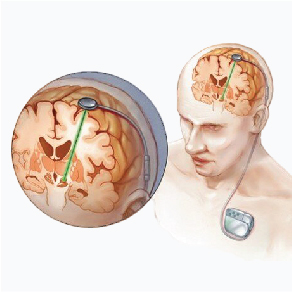
What is the Recovery Time for DBS Surgery?
Deep brain stimulation (DBS) has revolutionized the understanding and treatment of brain disorders by directly interfering with pathological neural circuits.
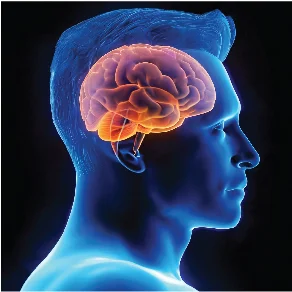
How Much Does Brain Tumor Surgery Cost In India?
A brain tumor is an abnormal growth or mass of cells in or around the brain. It can be benign (non-cancerous) or malignant(cancerous) and it affects both children and adults at any age.
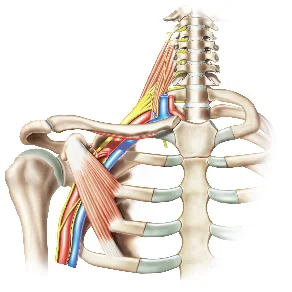
Brachial Plexus Surgery Cost in India
The brachial plexus is a network of nerves that sends signals from the spinal cord to the shoulder, arm, and hand. Any damage to these nerves will result in brachial plexus injuries.
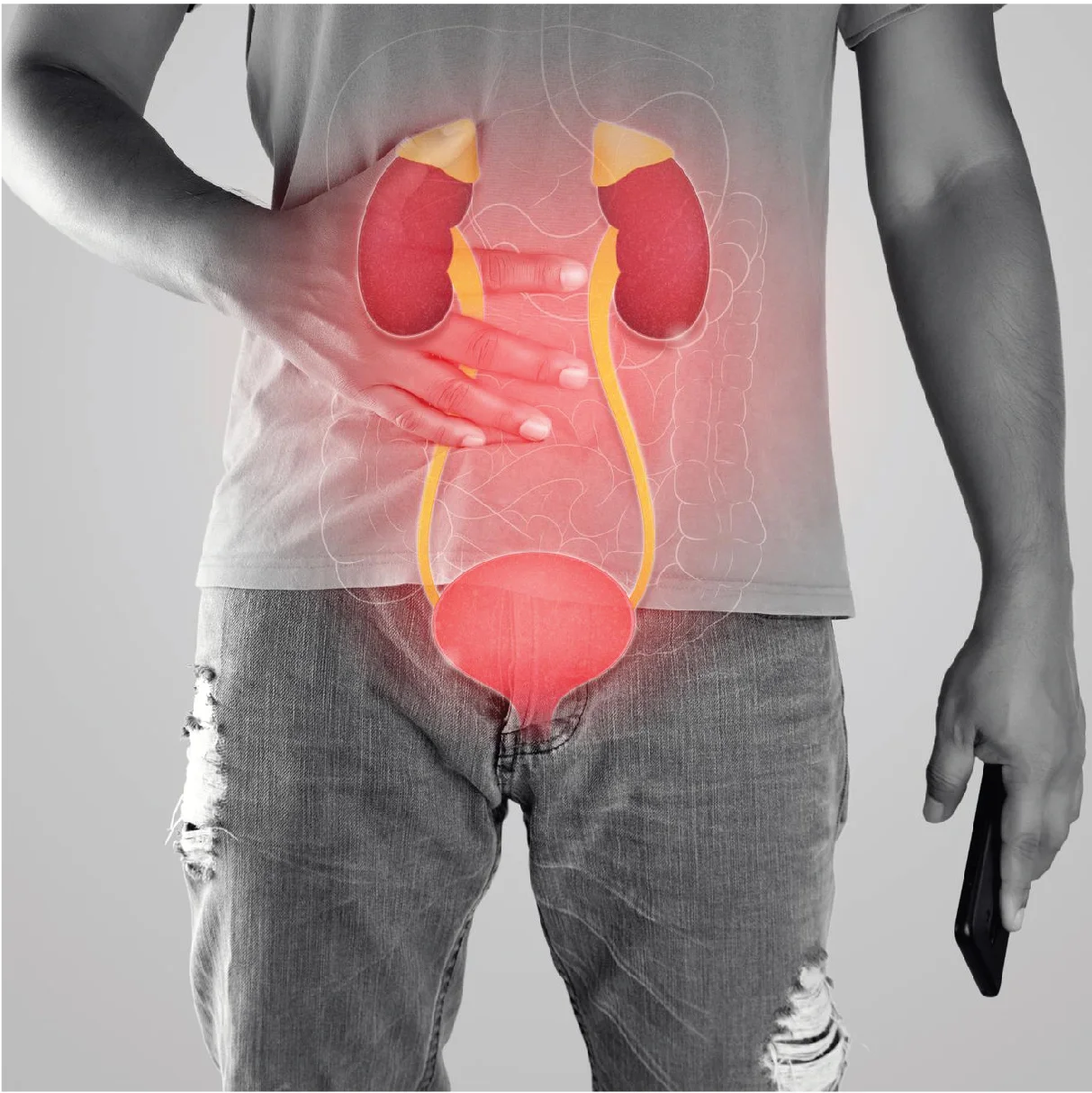
Bladder Incontinence Treatment: How to Regain Bladder Control
Bladder incontinence or urinary incontinence is the loss of bladder control movements that causes unintentional leakage of urine and is often an embarrassing problem for many people.
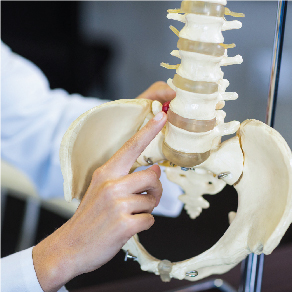
Spine Decompression Surgery for Treating Back Pain
When you are suffering from a persistent back pain that won’t go away with any of the medical treatment, then you may find long-term relief from spinal decompression surgery.
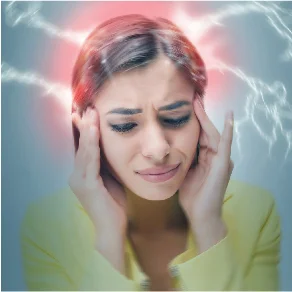
Epilepsy Treatment in Delhi - Causes, Symptoms & Diagnosis
Epilepsy is a type of chronic noncommunicable brain disorder that may affect people of any age. Recurrent seizures are its defining feature. These are brief bursts of involuntary movement that can affect the whole body (generalized) or just a portion of it.
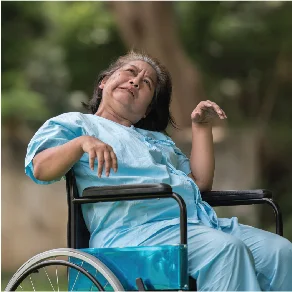
Best Paralysis Treatment in Delhi : Causes, Types and Symptoms
Paralysis is the inability to move your body voluntarily when something interferes with the nerve signals that go to your muscles. Paralysis can often be brought on by spinal cord injuries, strokes, and neurological conditions like multiple sclerosis.
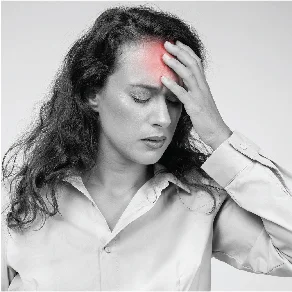
Migraine Treatment in Delhi: IBS Hospital | Manage Headaches
A migraine is much more than a severe pain in the head.It can induce severe, throbbing, one-sided headaches that can keep you in bed for days. Movement, lights, sounds, and other stimuli might induce symptoms such as weariness, nausea, visual defects, irritation, and others.
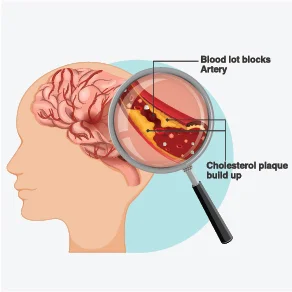
Understanding Ischemic Stroke
Ischemic stroke treatment is the most common form of stroke is ischemic, which occurs when arteries around the brain become blocked. These strokes can occur in a variety of locations across the body and may be caused by various types of blockages. A stroke happens when the body stops providing blood to the brain.
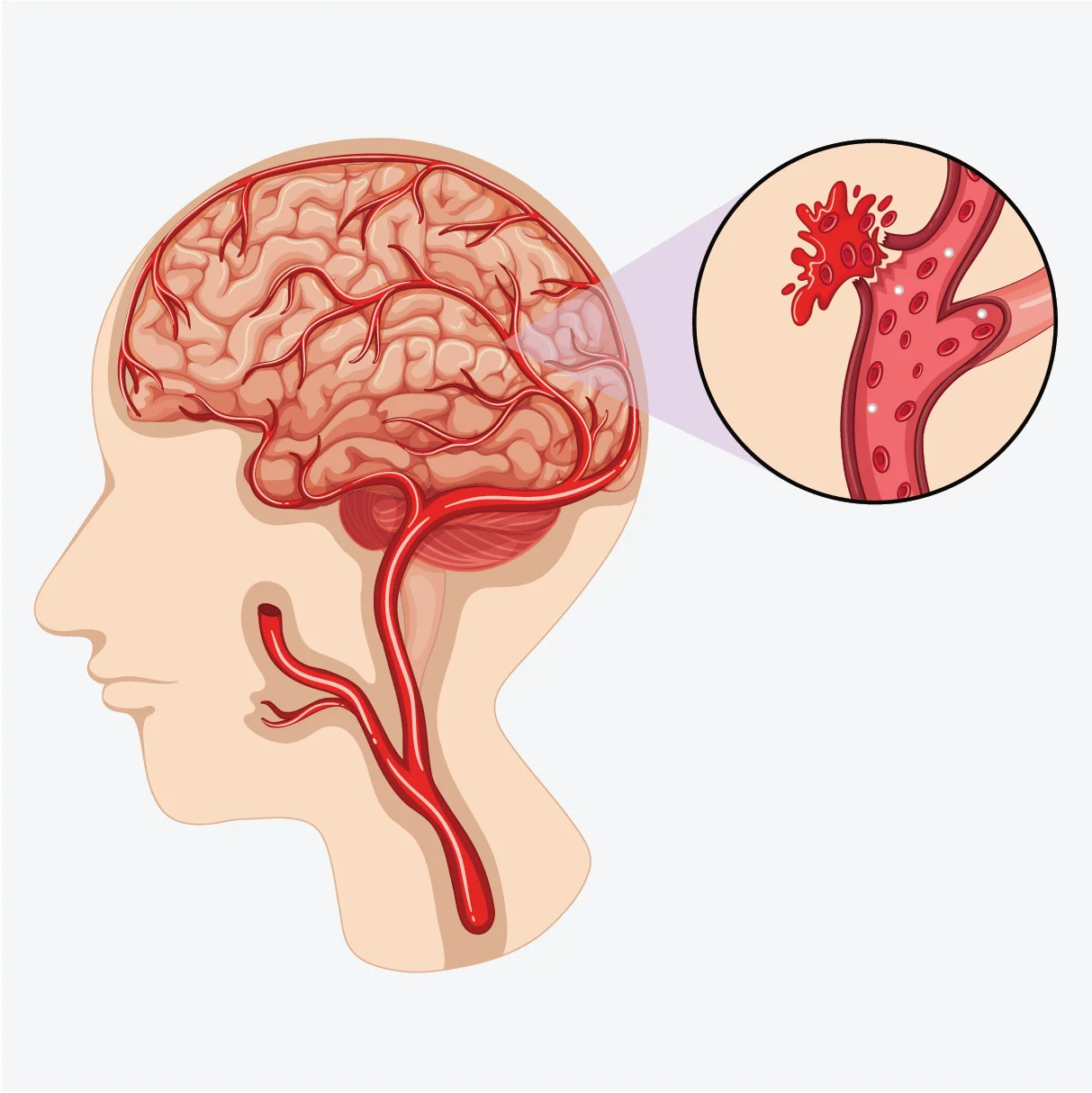
Hemorrhagic Stroke: What You Need to Know
A hemorrhagic stroke is a severe, life-threatening condition involving uncontrolled bleeding within the brain or between it and its outer covering layer. It disrupts blood circulation, causing oxygen deprivation and pressure on surrounding brain areas. Without prompt medical attention, these strokes can lead to permanent brain damage or even death.
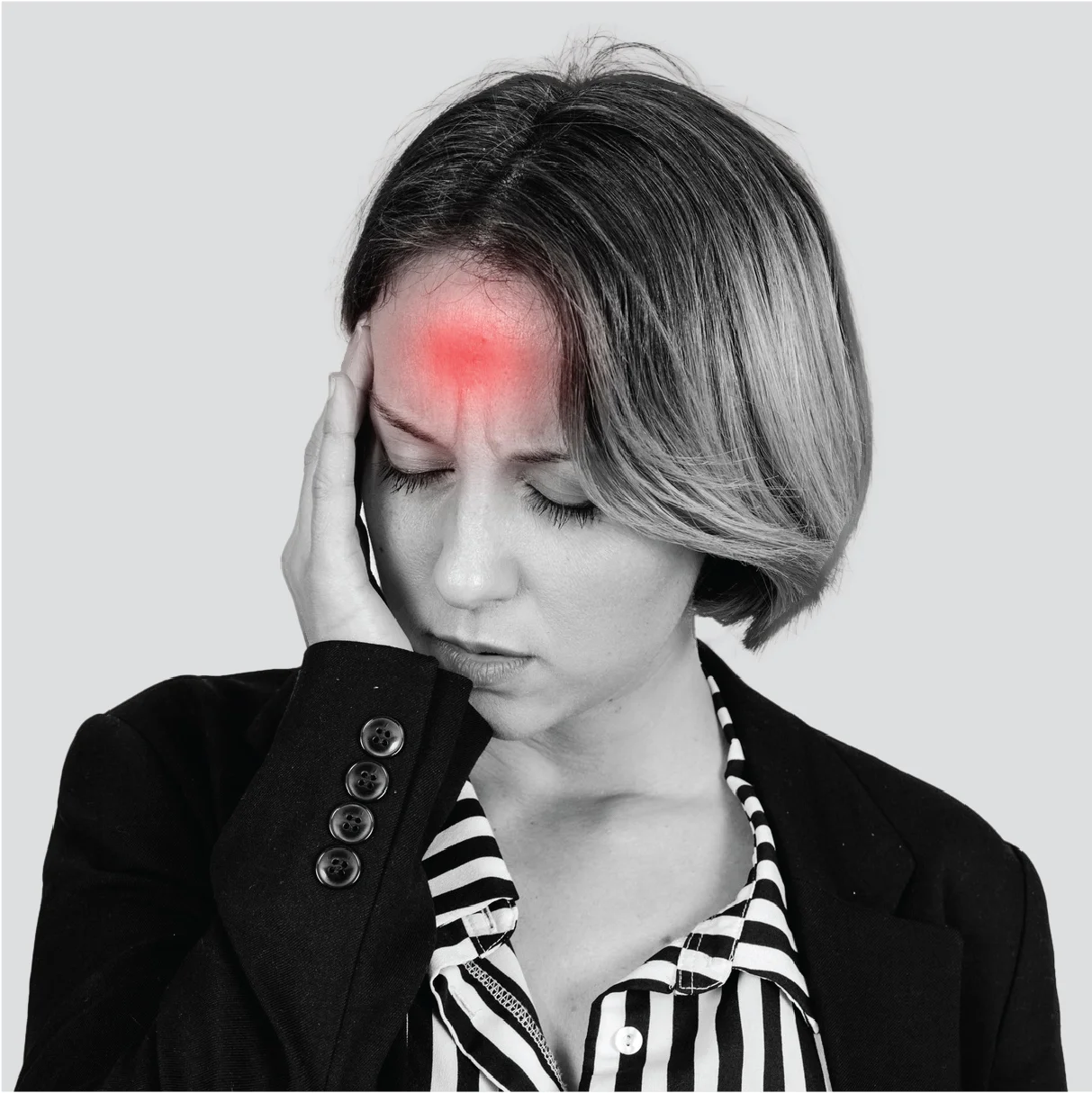
Headache Treatment and Relief: Understanding Causes and Types
A headache is a type of pain in the head or face that is frequently defined as a dull, acute, throbbing pressure. Concerning pain type, intensity, location, and frequency, headaches can vary considerably. Most people will suffer from headaches regularly throughout their lives.
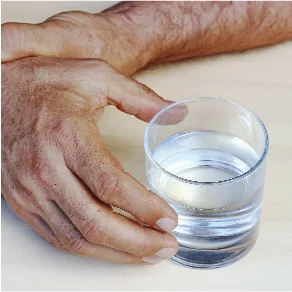
Debunking common myths about Parkinson's
Living with Parkinson's Disease can be quite challenging at times, as the neurodegenerative condition drastically impacts a person’s motor functions, giving rise to many deficits which affect the ability to indulge in normal, day-to-day activities.
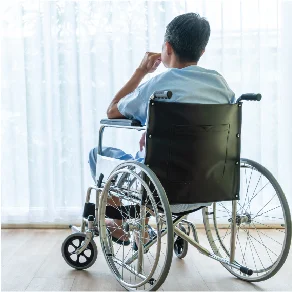
What Causes Paralysis Attack?
Ever heard about a Paralysis attack? It is a condition marked by the inability to move your muscles at your own well.
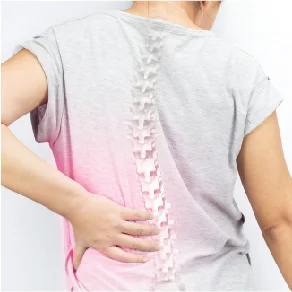
Straightening the Path: All about Scoliosis Treatment
Want to know all about scoliosis treatments that can help change your life? Read this blog to know more about the condition and various interventions that are available for its management.
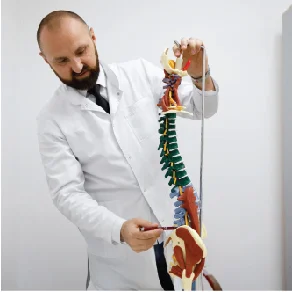
Spinal Cord Stimulation: A Technology Worth Knowing About
Living with chronic pain can be debilitating as it affects every aspect of one's life. Spinal Cord Stimulation (SCS) is a trailblazing technology that has shown promising results in the management of chronic pain that is not responding to other conservative treatments like medication.
 for Movement Disorders.webp)
Deep Brain Stimulation (DBS) for Movement Disorders
Deep Brain Stimulation (DBS) is a groundbreaking therapeutic approach in the realm of Neurological Care, that has revolutionized the treatment landscape for various movement disorders.
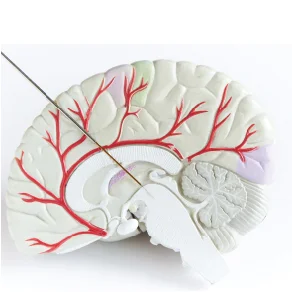
Stroke Prevention & Management: Key Strategies for Better Health
Stroke is one such condition that requires prompt medical intervention. Although it is both preventable and manageable, many people have to lose their battle against it due to a lack of awareness.
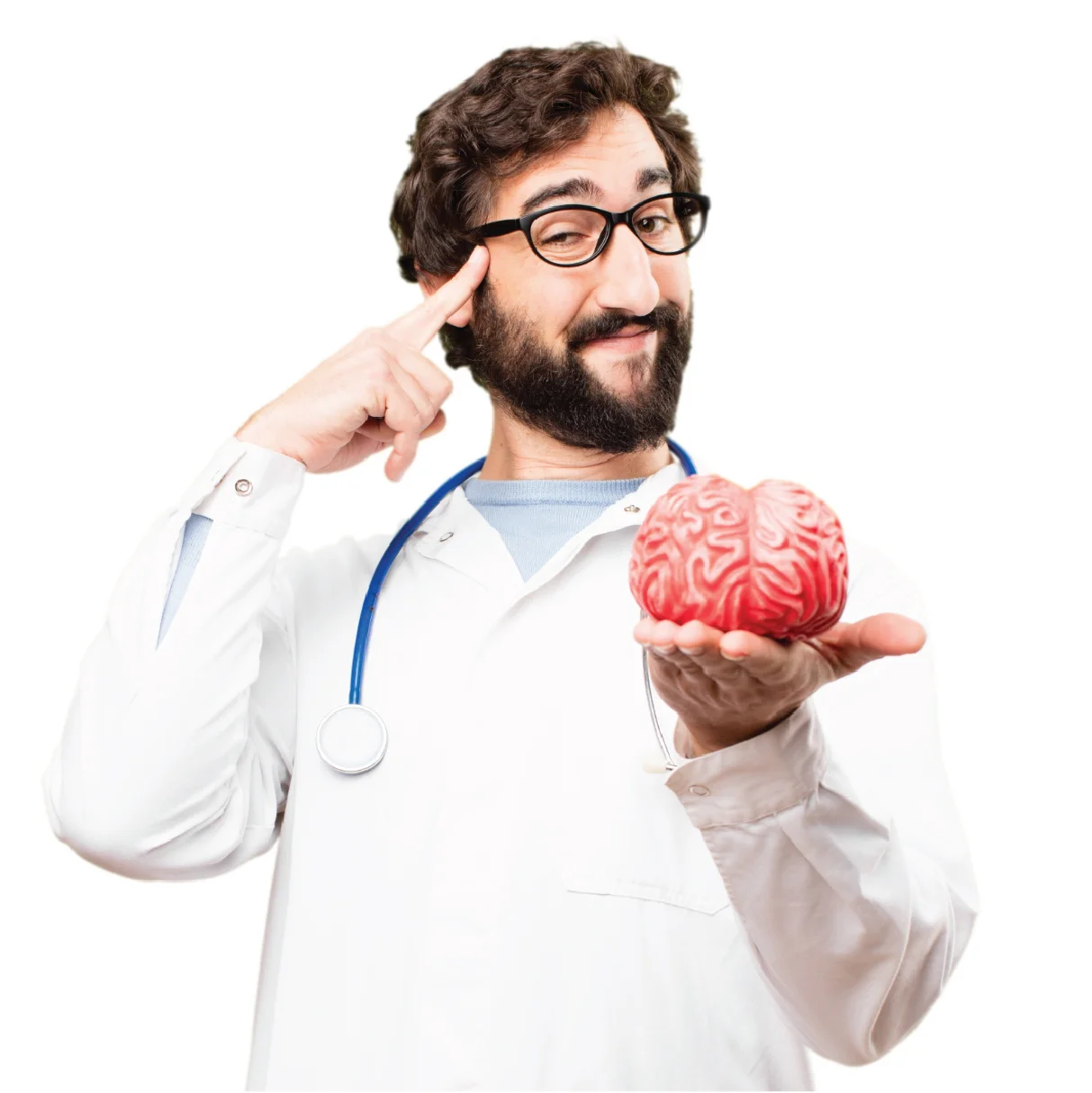
Brain Mapping: Exploring the Uses and Benefits
For decades, scientists, researchers, and medical professionals have been captivated by the complex mysteries of the human brain. Their curiosity has led to the development of many phenomenal modalities and tools that have revolutionized Neuro Care.
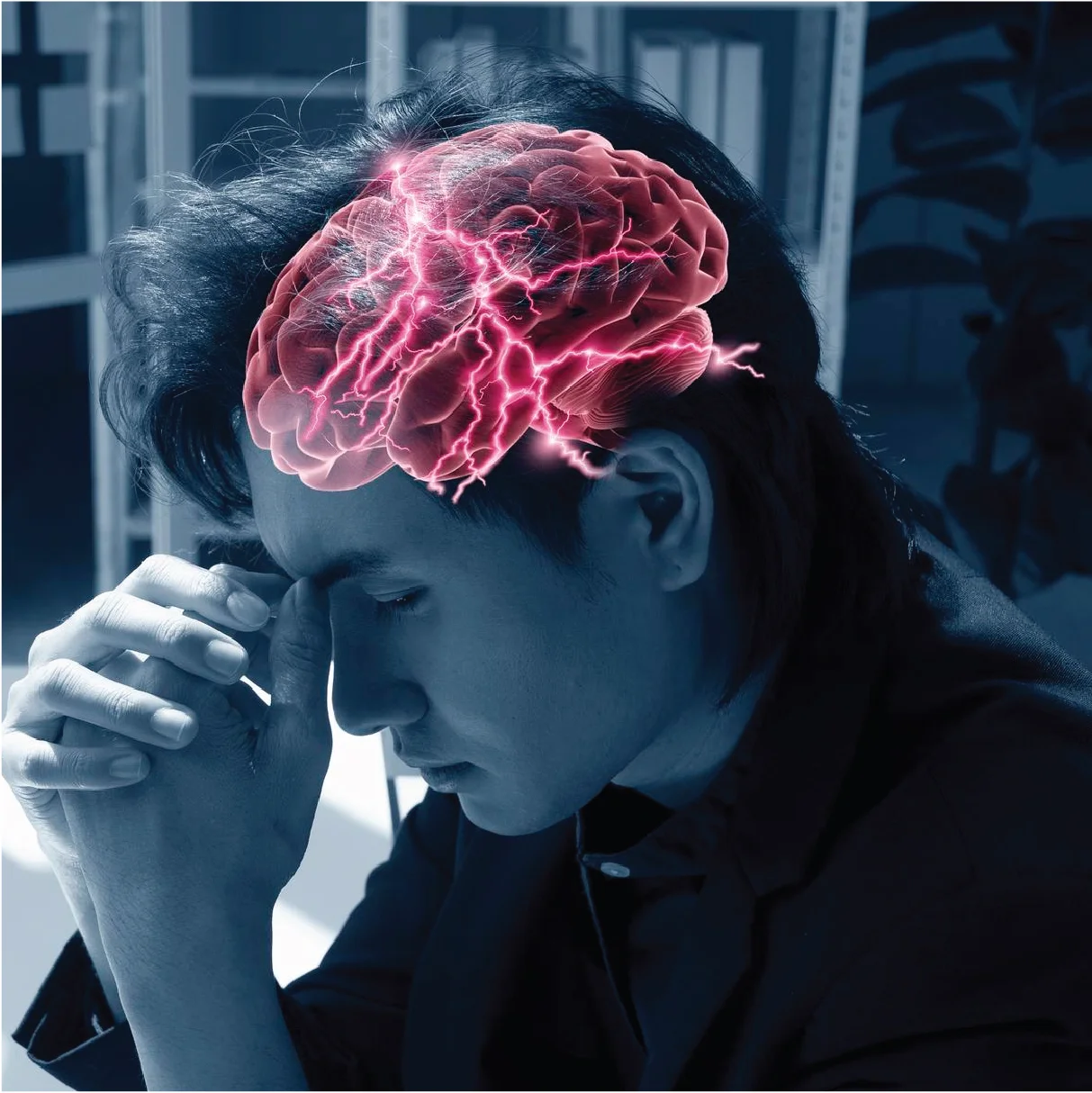
Importance of Neurorehabilitation in Managing Traumatic Brain Injury
Since the brain controls and regulates all the important functions, traumatic brain injuries can give rise to various debilitating complications. The impact may be short-term or long-term, depending on the extent of the damage.
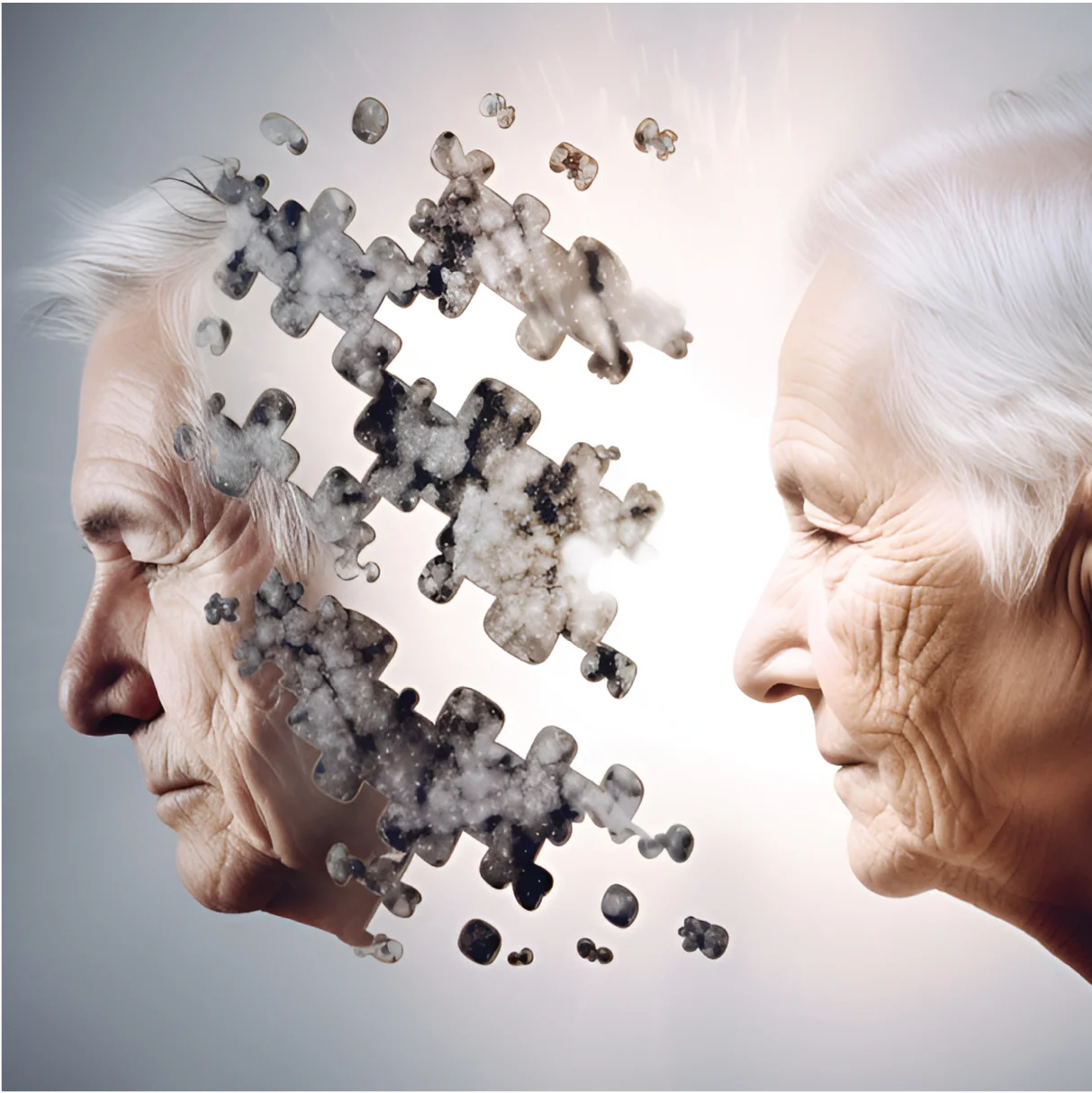
Alzheimer's Disease: Recognizing Early Warning Signs
Alzheimer's disease is a debilitating and degenerative brain illness that affects millions of lives across the globe. It eventually robs people of their quality of life by progressively weakening their independence, memory, and cognitive capacities.
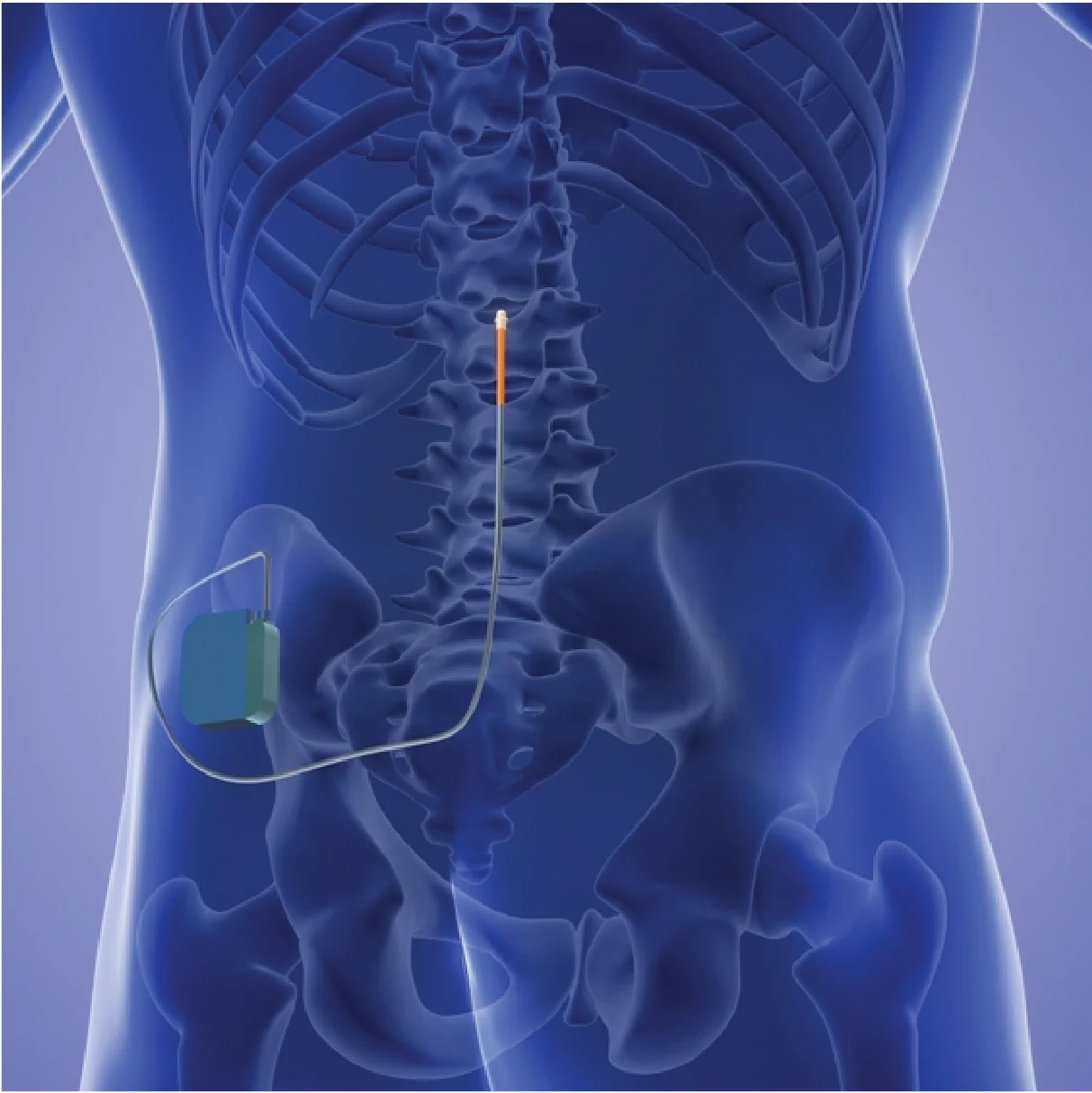
Major Indications of Epidural Stimulation
Epidural stimulation is one of the many advancements that we have witnessed in the field of neurorehabilitation over the past few years and it has become a beacon of hope for patients with a wide range of spine-related conditions and injuries.

Did your Pain Management Specialist tell you this?
Leading pain management specialists suggest that chronic pain can affect your life in so many ways, giving rise to challenges that hold you back from indulging in routine activities.
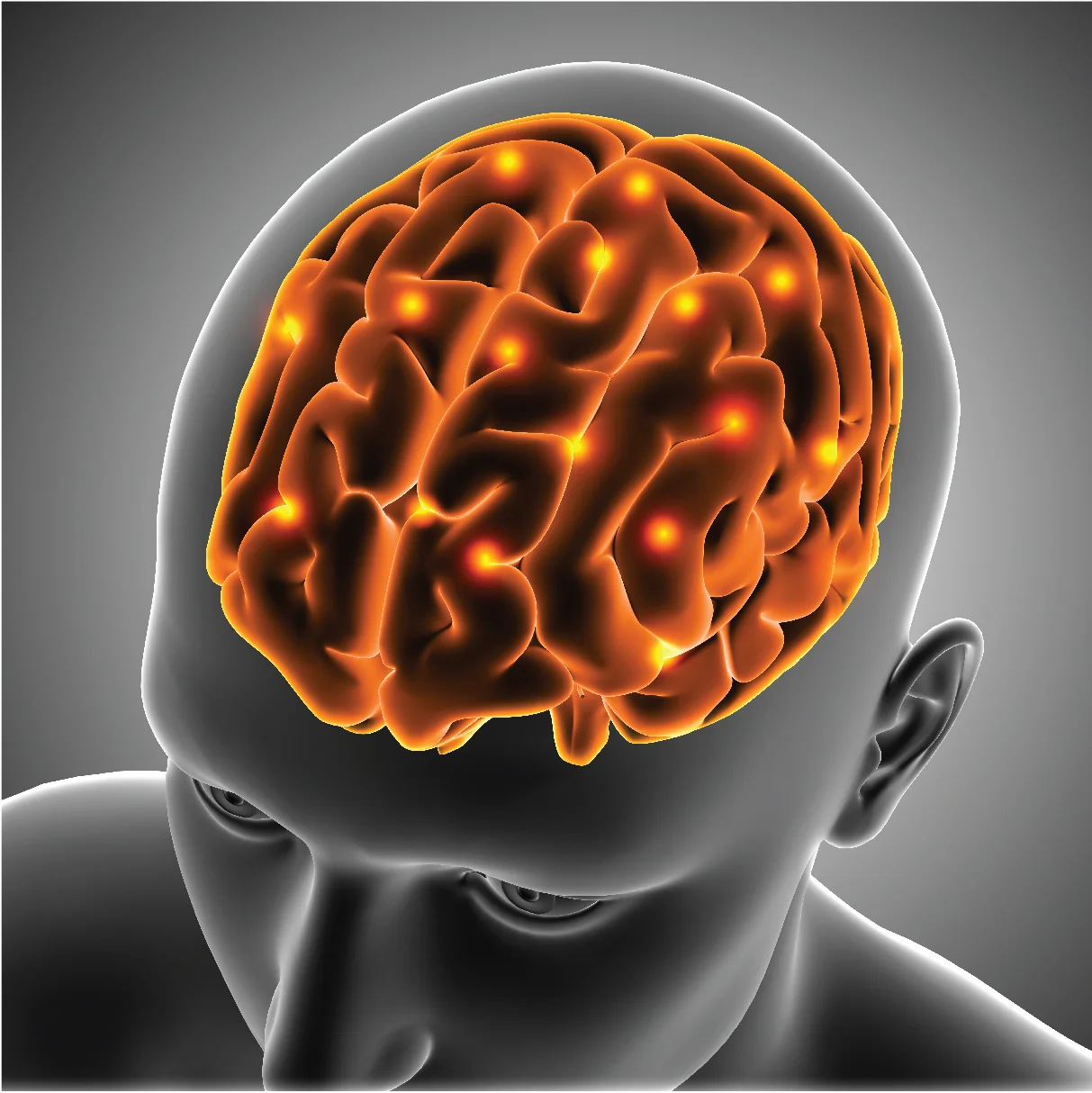
Exploring the Best Treatments for Brain Stroke
A brain stroke, also known as a cerebrovascular accident (CVA), is a medical emergency that occurs when there is a disruption of blood flow to the brain, leading to damage to brain cells.

Advancements in Dystonia Treatment in India
Dystonia is a complex neurological condition that drastically impacts a person’s movement by giving rise to involuntary muscle contractions, often resulting in an abnormal posture.
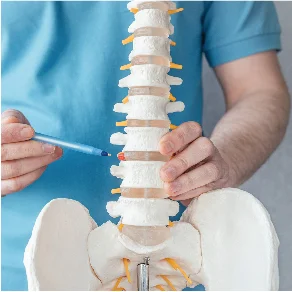
A Closer Look at Types of Spine Surgery
The human spine is an engineering wonder that plays an important part in our daily lives. It supports, stretches, and protects our sensitive spinal cord.

युवाओं में क्यों बढ़ रहा है ब्रेन स्ट्रोक? स्ट्रोक के प्रकार, कारण और इलाज
पिछले कुछ समय से हमारे देश में ब्रेन स्ट्रोक के मामलें कई गुना बढे है। दरअसल युवाओं को ब्रेन स्ट्रोक तेज़ी से प्रभावित कर रहा है। आखिर क्या कारण है कि युवाओं में ब्रेन स्ट्रोक का खतरा दिन पर दिन बढ़ता जा रहा है?
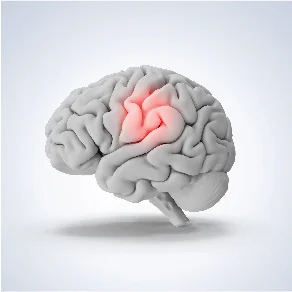
Understanding The Various Brain Tumor Causes
Getting familiar with various brain tumour causes can help us to bring down the risks of the same. With over 120 different types, brain tumour is one of the most serious medical conditions known to mankind. Although not all of these are necessarily life-threatening, most can prove to be debilitating without proper medical care.
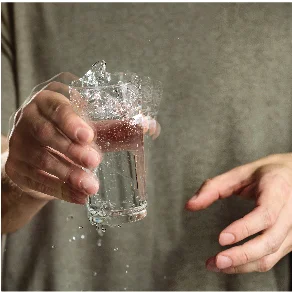
Exploring Parkinson's Disease Types and Modern Treatments
Want to know all about Parkinson’s disease, types and treatment? Reading this blog can help you understand everything you need to know about the disease.
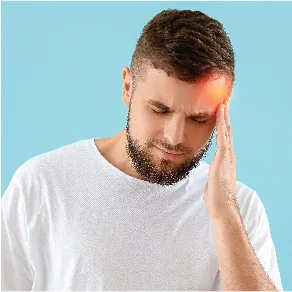
Surviving and Thriving: Life After Brain Tumor Surgery
A brain tumor diagnosis is one of the most difficult trials a person can face in life. The path from diagnosis to treatment, including surgery, can be difficult.
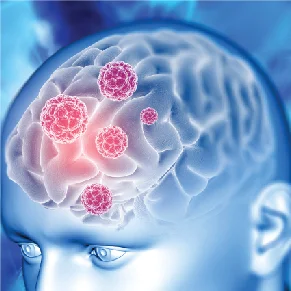
Treatments Available for Skull Base Tumors
A skull base tumor is an abnormal growth that develops within the intricate network of bones at the bottom of the skull, often requiring specialized treatment as these are closely surrounded by delicate structures like the brainstem, cranial nerves, and major blood vessels.
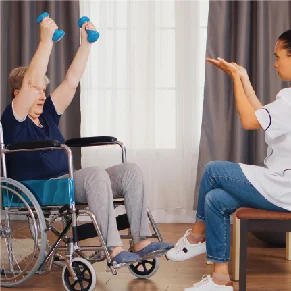
All about Amyotrophic Lateral Sclerosis Treatment
Amyotrophic Lateral Sclerosis (ALS), often referred to as Lou Gehrig's disease, is an aggressive motor-neuron disease marked by the progressive loss of nerve cells that are found within the brain and spinal cord
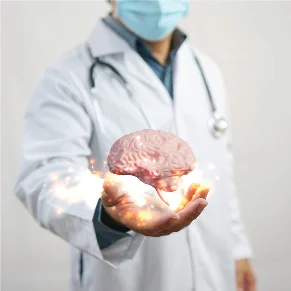
Understanding Different Types of Brain Cancer
The term brain cancer is used to describe any malignancy that originates or develops within the brain.
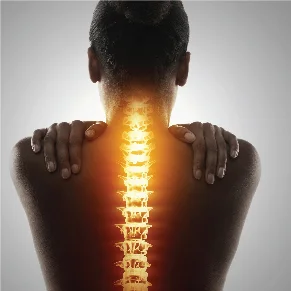
Spinal Cord Stimulation: Why should you consider it?
Irrespective of what is causing it, chronic pain can be quite challenging to deal with, especially because its impact is not just physical
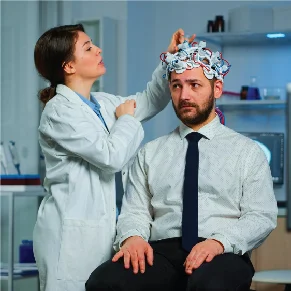
Symptoms that Suggest you Should See a Neurologist
More than 1 billion people across the globe suffer from neurological disorders, which is quite alarming as many of these conditions can be debilitating or even life-threatening.

The Importance of Timely Stroke Management and Rehabilitation
A stroke, often referred to as a "brain attack," is a medical emergency that occurs when blood flow to the brain is disrupted, either due to a blocked blood vessel (ischemic stroke) or a ruptured blood vessel (hemorrhagic stroke)
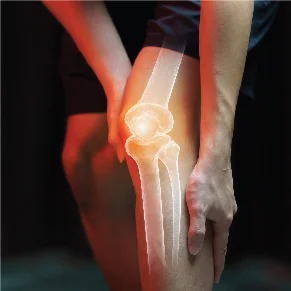
How Can Knee Replacement Change your Life?
Not being able to indulge in normal day-to-day activities just because your knee pain is holding you back can be overwhelming. Millions of people across the globe are living with the problem globally.
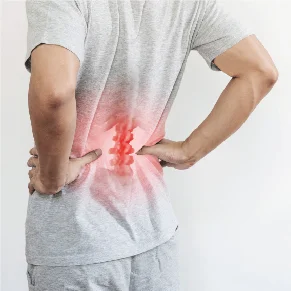
Spine Surgery: Who Can Benefit from It
The spine is the primary support structure of the musculoskeletal system, which plays a crucial role in supporting our body's structure and facilitating movement.
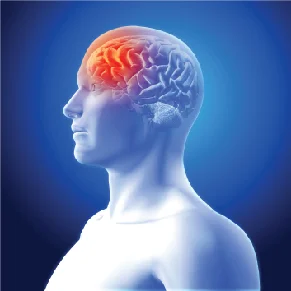
How Recovering from Brain Tumor Surgery
The human brain is a complex and intricate network of neurons and synapses. It is the main control unit of our body, responsible for regulating all functions.
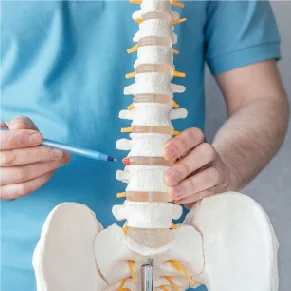
Scoliosis: Treatments That Can Make an Impact
Scoliosis is a common spine deformity characterized by an abnormal C or S-shaped curvature in the spine when viewed from the front or back. It primarily develops in infancy or early childhood and can affect anyone.
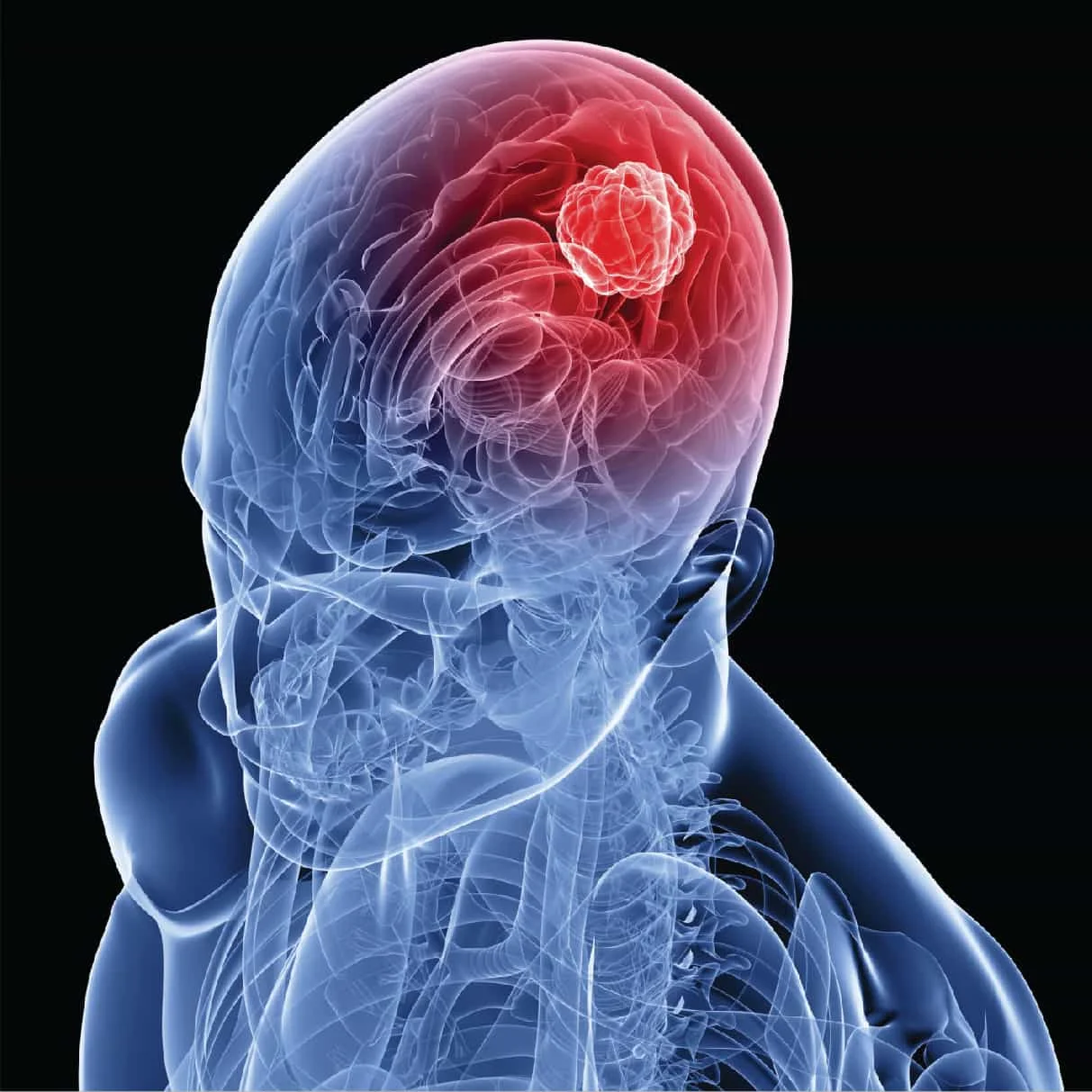
Treatments that can help you win the fight against brain tumours
Brain tumours are lumps of abnormal cells and tissues that can develop in any part of the brain, often giving rise to debilitating or even life-threatening symptoms.
.webp)
Epilepsy Management in Delhi: Diet Therapy & Deep Brain Stimulation
Epilepsy is a chronic neurological disorder characterized by unprovoked and recurrent seizures.
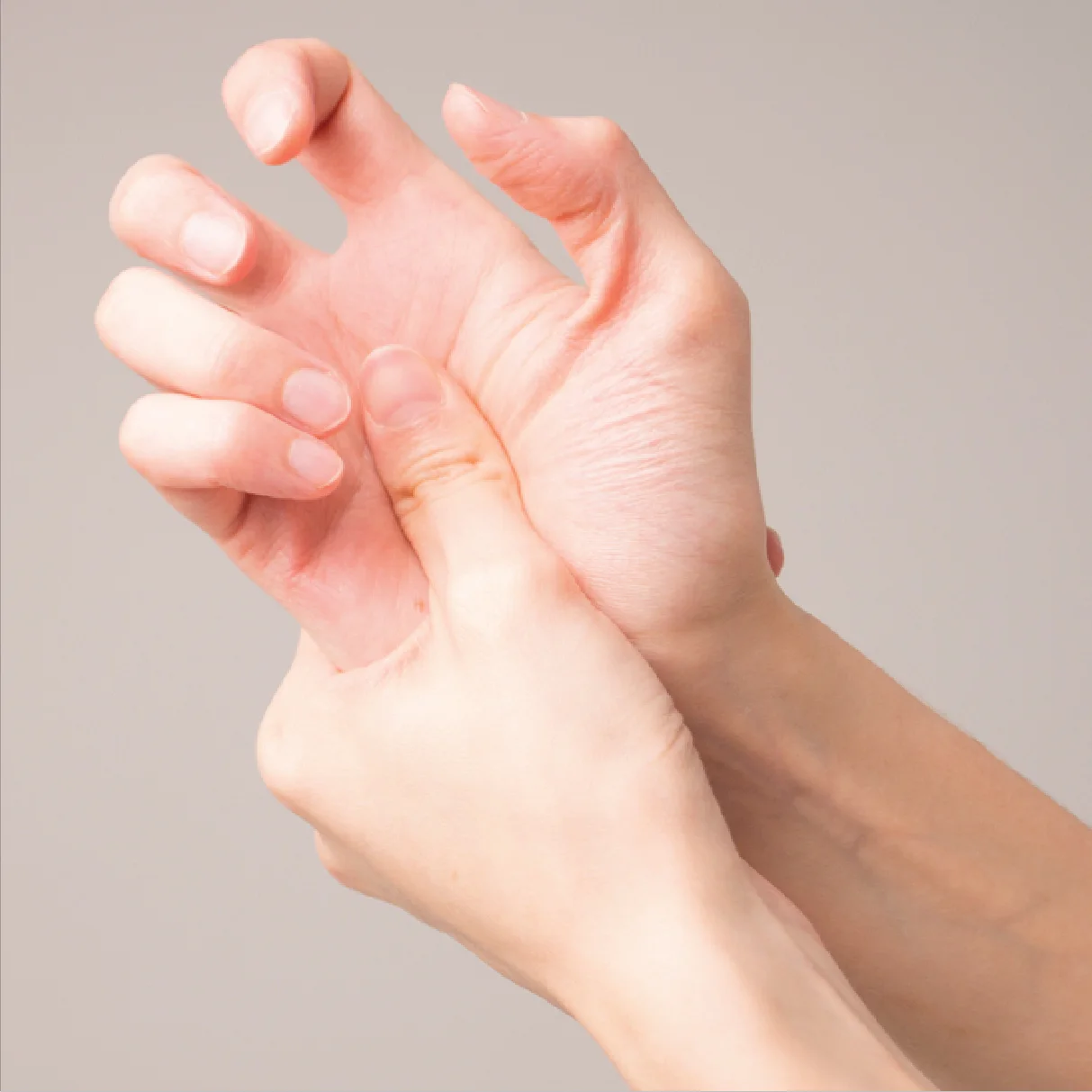
Living with Parkinson's: Tips to manage daily challenges
Parkinson’s disease is one of the most common neurodegenerative movement disorders affecting a population of roughly 10 million people globally.
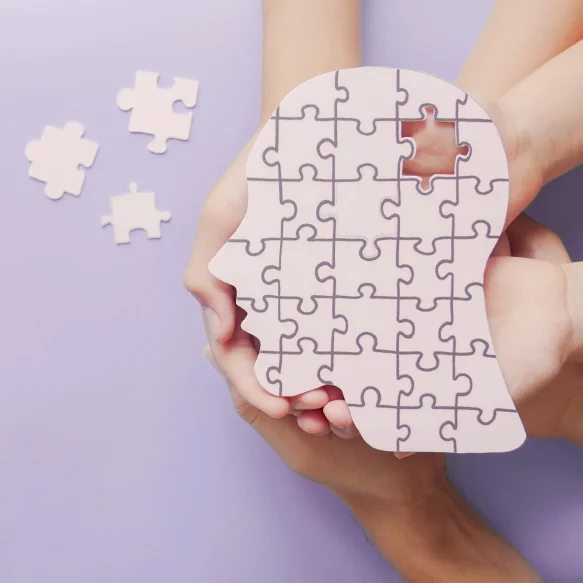
Memory Matters: Distinguishing Forgetfulness from Alzheimer's
Our memory plays a crucial role in determining our ability to acquire knowledge and understand things. This is primarily because it allows us to retain and recall our past experiences and use them in our present.
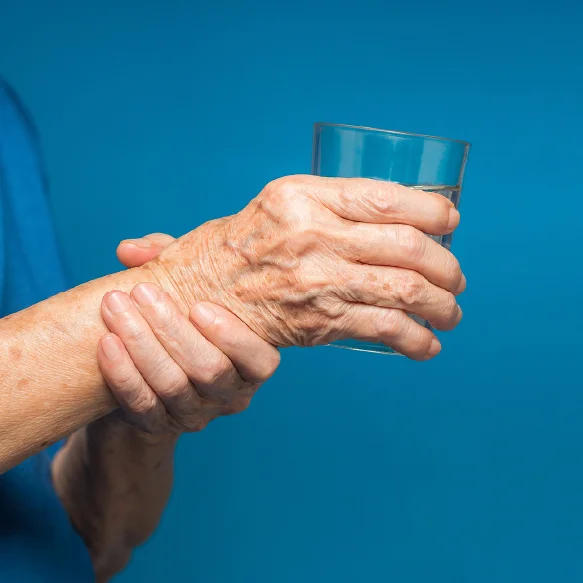
Is Parkinson’s Curable?
Parkinson’s may be a word for some, but a reality for more than 8.5 million people across the globe. The neurodegenerative condition drastically impacts a person’s motor symptoms, making them lose control over their movement.
.webp)
Dystonia: Choosing a Better Life with DBS
Dystonia is a neurological disorder marked by involuntary contraction of muscles that not only results in repetitive, twisting movement but also affects a person’s ability to maintain the right posture.
.webp)
All you need to know about Deep Brain Stimulation
Neurological conditions often prove to be debilitating as these can interfere with the normal conduction of electrical signals between the brain and the body.
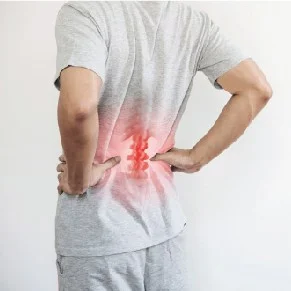
Orthopedic Assistance For Back Pain Treatment
There are different parts present in our body and each of them plays a specific part.
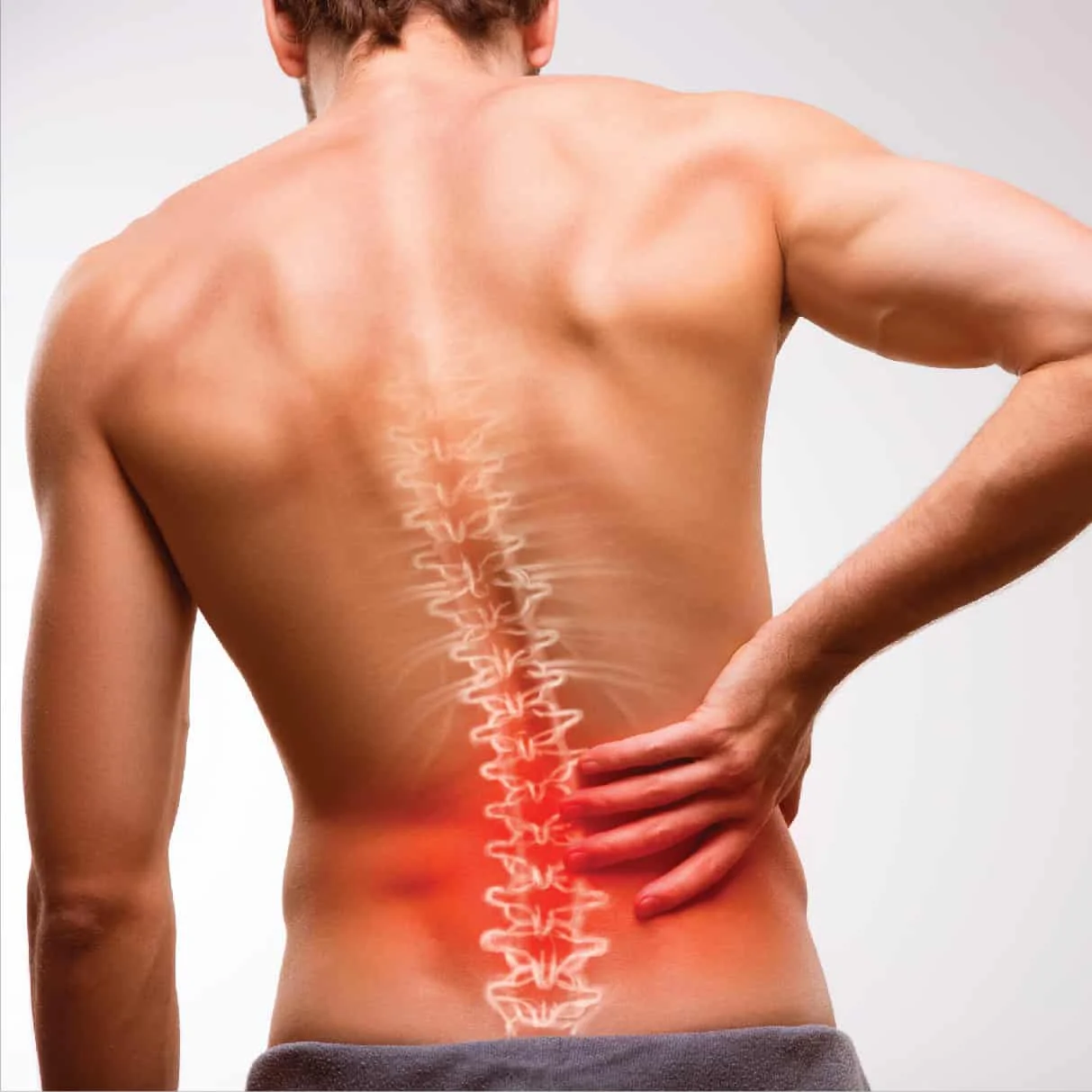
Modern Techniques For Back Pain Treatment
Back Pain is a very common problem, experienced by millions across the globe on a daily basis. It may range from a mild ache to sharp, shooting pain or burning sensation. In the majority of cases, the pain is related to the spine.
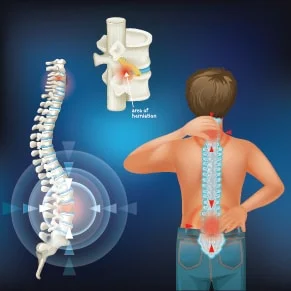
Spinal Cord Injury: Causes, Symptoms, and Treatment Options
A Spinal Cord Injury (SCI) can be defined as damage to any part of the spinal cord or nerve injury at the end of the spinal canal which causes permanent changes in strength, capacity, and other body functions below the site of the injury, thereby resulting in the loss of mobility.
Blog List
Home >
Blog



